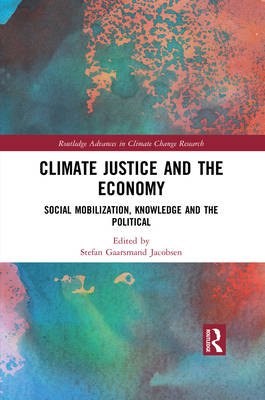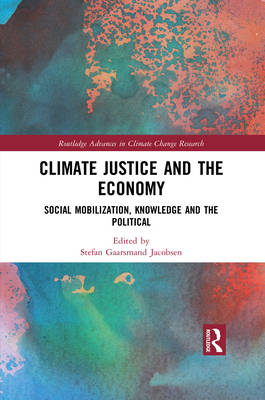
- Afhalen na 1 uur in een winkel met voorraad
- Gratis thuislevering in België vanaf € 30
- Ruim aanbod met 7 miljoen producten
- Afhalen na 1 uur in een winkel met voorraad
- Gratis thuislevering in België vanaf € 30
- Ruim aanbod met 7 miljoen producten
Climate Justice and the Economy
Social Mobilization, Knowledge and the Political
Omschrijving
As climate change has increasingly become the main focus of environmentalist activism since the late 1990s, the global economic drivers of CO2 emissions are now a major concern for radical greens. In turn, the emphasis on connected crises in both natural and social systems has attracted more activists to the Climate Justice movement and created a common cause between activists from the Global South and North. In the absence of a pervasive narrative of transnational or socialist economic planning to prevent catastrophic climate change, these activists have been eager to engage with advanced knowledge and ideas on political and economic structures that diminish risks and allow for new climate agency.
This book breaks new ground by investigating what kind of economy the Climate Justice movement is calling for us to build and how the struggle for economic change has unfolded so far. Examining ecological debt, just transition, indigenous ecologies, social ecology, community economies and divestment among other topics, the authors provide a critical assessment and a common ground for future debate on economic innovation via social mobilization.
Taking a transdisciplinary approach that synthesizes political economy, history, theory and ethnography, this volume will be of great interest to students and scholars of climate justice, environmental politics and policy, environmental economics and sustainable development.
Specificaties
Betrokkenen
- Uitgeverij:
Inhoud
- Aantal bladzijden:
- 196
- Taal:
- Engels
- Reeks:
Eigenschappen
- Productcode (EAN):
- 9780367459017
- Verschijningsdatum:
- 4/03/2020
- Uitvoering:
- Paperback
- Formaat:
- Trade paperback (VS)
- Afmetingen:
- 155 mm x 231 mm
- Gewicht:
- 317 g

Alleen bij Standaard Boekhandel
Beoordelingen
We publiceren alleen reviews die voldoen aan de voorwaarden voor reviews. Bekijk onze voorwaarden voor reviews.










